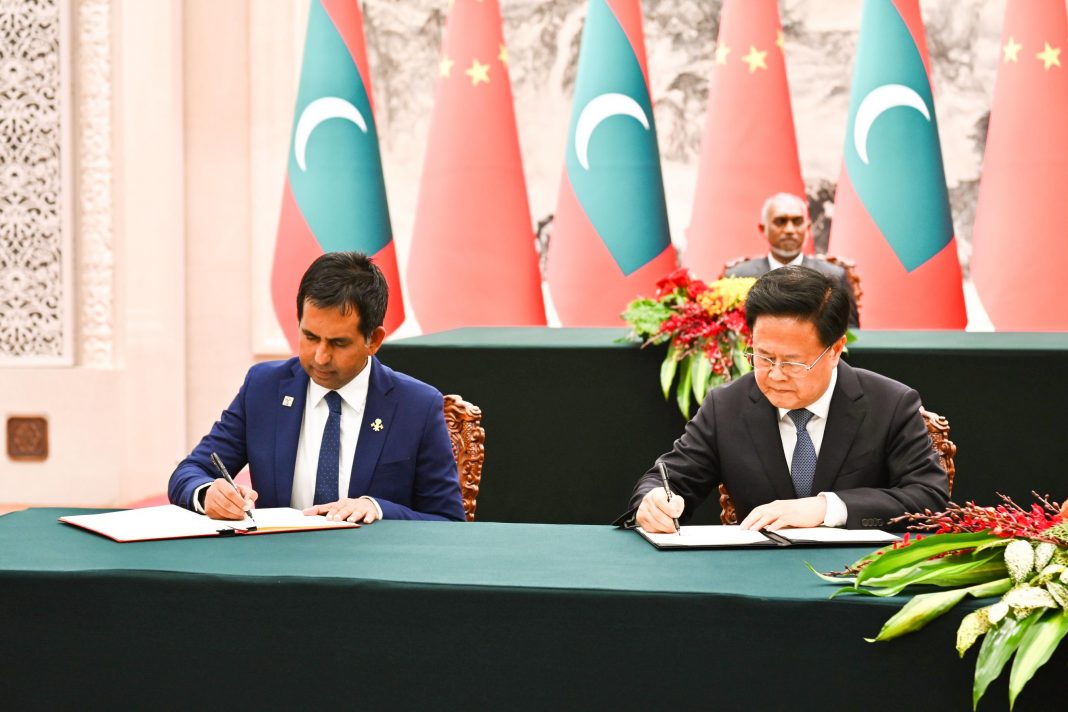The recent actions of the Muizzu Government, particularly regarding the secrecy surrounding agreements signed during President Muizzu’s state visit to China, raise serious concerns about transparency and accountability. The decision by the Economic Ministry to classify all agreements signed during the visit is troubling. It not only undermines the principles of open governance but also deprives the Maldivian public of crucial information about deals that could have significant implications for the country’s future. By refusing to disclose details of these agreements, the government is effectively shutting out the very people it is meant to serve from participating in the decision-making process.
Furthermore, the justification provided by the Economic Ministry for withholding information under the right to information law is weak and appears to prioritize government interests over public accountability. Article 31, which the ministry cites, allows for non-disclosure of information only in cases where disclosure would result in “irrevocable damage” or be “prejudicial to the benefit of implementing administrative policy.” However, it is unclear how the release of information about economic agreements with China would meet these criteria, especially considering the public’s right to know about decisions that could impact the country’s economy and development.
The lack of transparency surrounding these agreements is further exacerbated by China’s refusal to provide additional details. While it is understandable that foreign governments may have their own protocols regarding disclosure, the Maldives government’s assurance of transparency rings hollow when it fails to hold up its end of the bargain. The decision to classify agreements such as those pertaining to economic development policy, digital economy cooperation, and investment in green development raises questions about the government’s priorities and motives. What is it trying to hide?


















